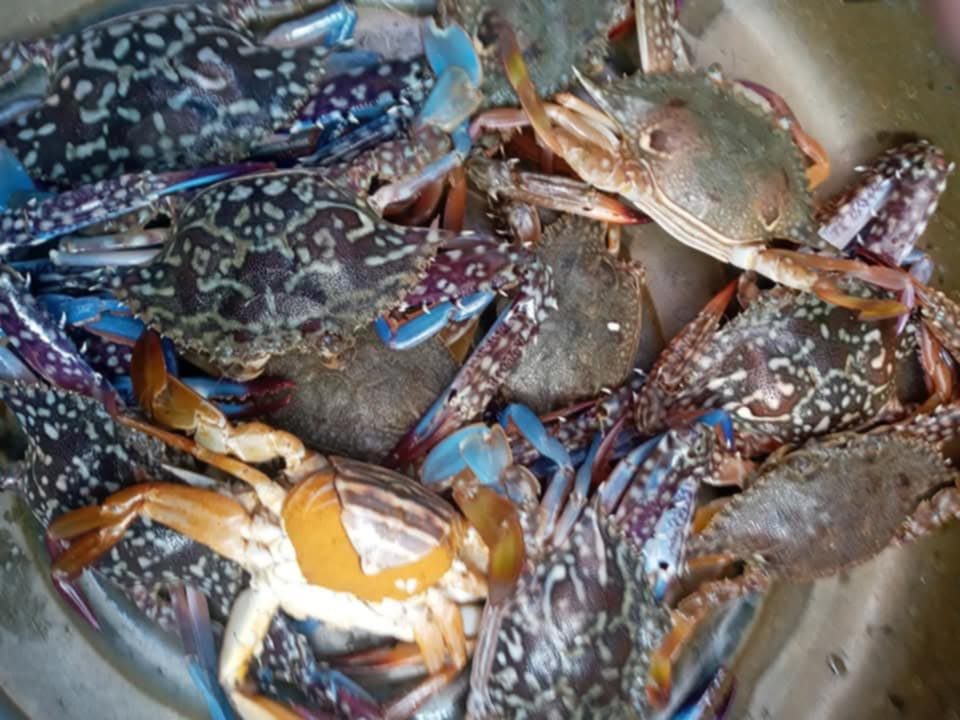Physical Address
304 North Cardinal St.
Dorchester Center, MA 02124
Physical Address
304 North Cardinal St.
Dorchester Center, MA 02124

The Panay-Negros-Guimaras Crab Fishers Alliance joins the outcry, expressing disappointment over the SC ruling which the group sees as ‘anti-poor, anti-people, anti-small fishers’
NEGROS OCCIDENTAL, Philippines – The P2-billion blue crab export industry in Negros Occidental faces a looming crisis following a Supreme Court (SC) ruling that permits commercial fishing within the 15-kilometer municipal water zone.
Frank Carbon, chief executive officer of the Metro Bacolod Chamber and Industry (MBCCI), warned on Tuesday, February 11, that the decision threatens to devastate the crab habitats along the Guimaras Strait and Visayan Sea.
Data from the Bureau of Fisheries and Aquatic Resources and the MBCCI show that the country’s blue crab industry, valued at P3.2 billion, is expected to be affected. Of that amount, 55% to 65% comes from Negros Occidental.
Negros Occidental contributes 35% to 45% of the country’s blue crab meat exports to the United States and Europe alone. Other major suppliers include Palawan, Cebu, Guimaras, and Iloilo. Once second only to sugar in export value, blue crab production in the province spans 12 towns and cities.
Among these, EB Magalona leads the industry, producing an average of five tons per day, a figure that doubles from July to October. Manapla follows closely behind.
Coastal barangays in these localities host crab-picking stations, employing a predominantly female workforce. The province also operates five crab-canning plants, with surplus production often shipped to Cebu for processing.
With the ruling allowing commercial fishing to encroach on these municipal waters, Carbon said it’s going to be “disaster” for the province’s dollar-earning blue crab industry.
“It will also be a bane for thousands of crab-picking and canning Negrense workers,” he added.
Leaders of the Panay-Negros-Guimaras Crab Fishers Alliance (PANEG-CA) joined the outcry on Monday, February 10, expressing disappointment over the SC’s August 2024 ruling. In a statement, the group called it “anti-poor, anti-people, anti-small fishers.”
The SC ruling affects 24 coastal towns and cities in Negros Occidental, including the 12 crab-producing localities, plus 19 municipalities in Panay and five in Guimaras.
The legal battle began when Mercidar Fishing Corporation challenged a local government’s jurisdiction over municipal waters, arguing before a Malabon court that it was unconstitutional.
In 2023, Malabon Regional Trial Court (RTC) Judge Zaldy Docena ruled in Mercidar’s favor. A year later, the SC upheld the decision, citing procedural lapses by the Office of the Solicitor General and the Bureau of Fisheries and Aquatic Resources (BFAR) in filing counterclaims.
In effect, they said, the ruling nullified the Fisheries Code’s definition of municipal waters, stripping the Philippine National Police, the Philippine Coast Guard, and local governments of enforcement power over the 15-kilometer fishing ban.
Edwin Balajadia, area manager of the Philippine Rural Reconstruction Movement (PRRM), said they would ask the High Tribunal to reconsider, citing the decision’s dire consequences for over 5,000 crabbers and fishers across Negros, Guimaras, and Panay.
“More than 30,000 of their dependents will surely languish from poverty for having no catch every day once the competition between small fishers and big fishing operators begins,” he said.
“It’s quite absurd on the part of the government, wherein its laxity will cause too much misery among the marginalized fisherfolk across the country. It will ruin the small fishers’ rich territories, resulting in low to no fish catch at all every day,” Balajadia said.
PANEG-CA’s Edwin Espinosa warned the ruling could result in unrest among industry workers and other stakeholders.
Meanwhile, the group’s chairman, Gerry Bedoya, said it would exacerbate poverty among small fishers nationwide and accelerate environmental degradation along the country’s coastal waters. – Rappler.com